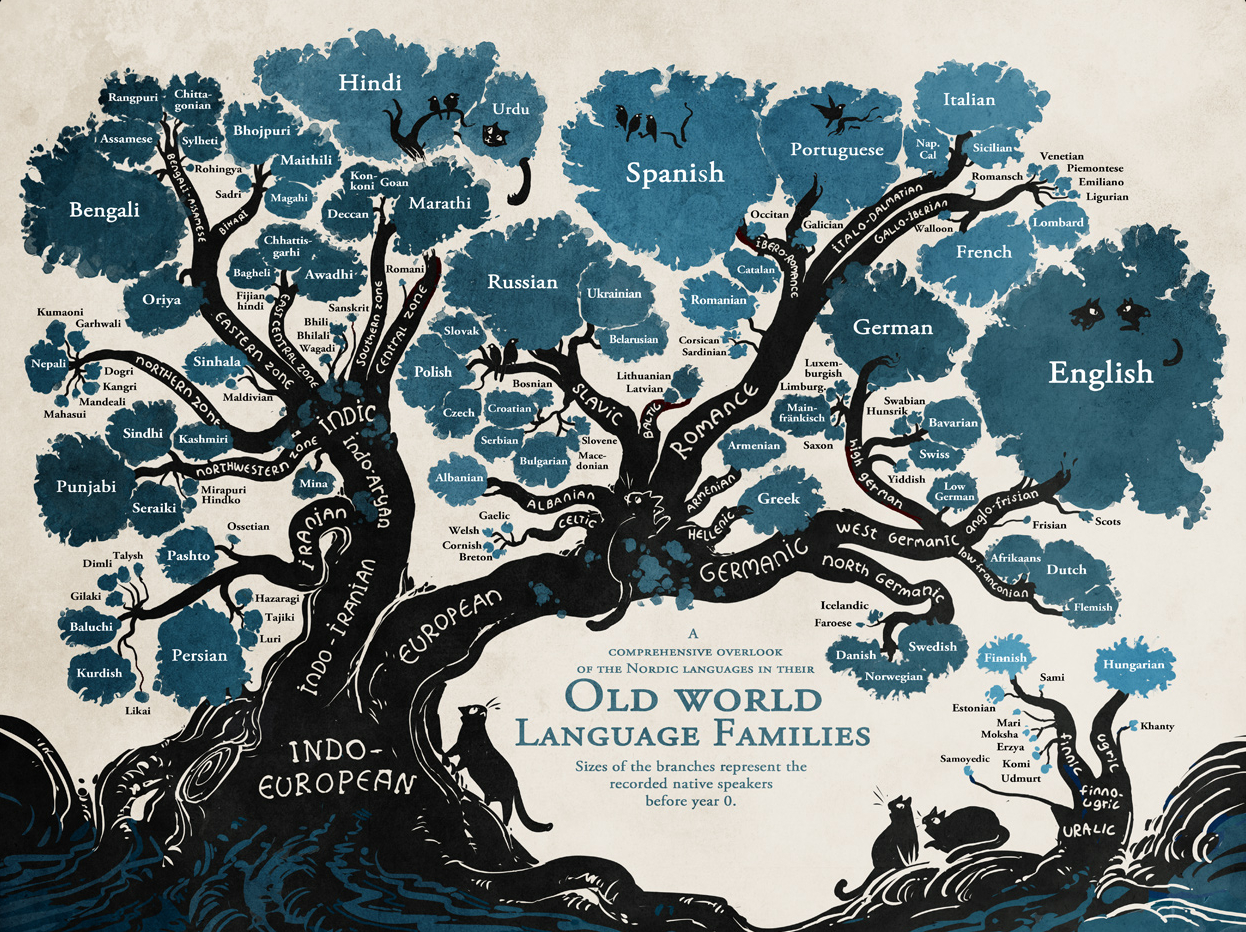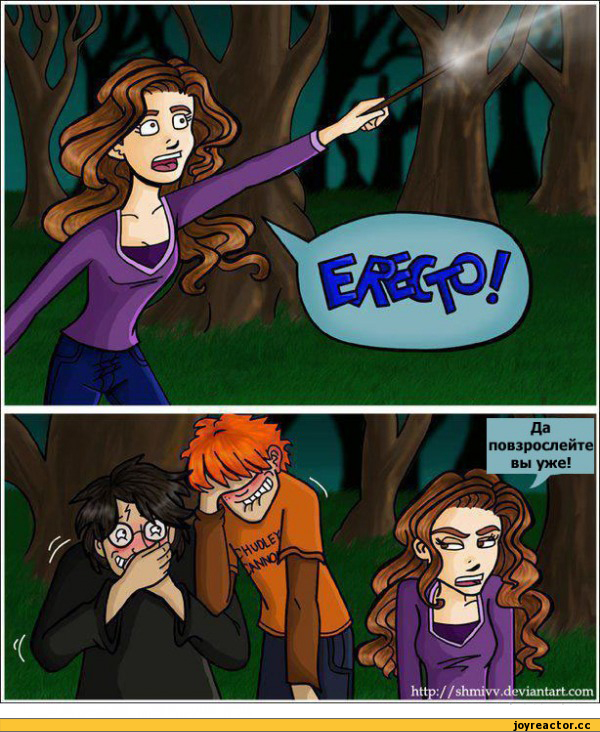
Never try to explain to a stranger in English how to find a Sewing store on Fartovoy Street, next to the Fakel cinema.
Today we will talk about the Teleporno effect, which in scientific circles is called "linguistic shock". When a normal word or phrase in a foreign language sounds like a curse or something wild in your native language.
Why Teleporno and how to use this effect for pumping English and other foreign languages - read the article.
The Teleporno effect: what is it and what does Tolkien have to do with it
The Teleporno effect is the difference in perception between speakers of different languages, when in one language a name, word or phrase seems quite ordinary, but in another they sound indecent.
Why Teleporno? It's Tolkien's fault.
In his works, the writer created several artificial languages, including Elvish and Quenya. At the same time, all Noldor and Sindarin names in Quenya will sound differently, because they are translated by meaning, and not just transliterated.
For example, Legolas ("green leaf") will be Lyqualasse, and Galadriel ("crowned with radiance") will be called Alatariel.
But Celeborn ("the silver tree"), the husband of Galadriel and the lord of Lorien, will be called Teleporno in Quenya.
According to the grammar of the language invented by Tolkien, "Tjelpe" ("silver") before some vowels turns into "tielep", "telep". Orne, or at the end of the male name, orno, is a tall, slender tree.
But when the reader sees "Teleporno", the first association will be "porn that is shown on TV," and not this is all. Willy-nilly for a second you turn into a schoolboy who first heard the word "polynomial".
In scientific circles, the Teleporno effect is called linguistic shock. It is defined as interlingual homonymy, which in turn is considered a special case of "false friends of the translator."
Why the Teleporno effect occurs at all
Although the human speech apparatus is capable of producing dozens of different sounds, their number is still limited.
Because of this, in two different languages, there will inevitably be examples where ordinary names, words or phrases in one language will sound indecent in another.
Hue Nuong is a name that translates from Vietnamese as "clever". And the phrase that is heard by a Russian-speaking person as "finally x * ynya" is just "I am Huinya" in Chinese.
Moreover, the Teleporno effect can occur not only between radically different languages, but also between closely related ones.
For example, Ukrainian and Russian. "Ty is ugly" is just "You are beautiful", not "You are ugly." And "zustrіnemosya on rose streets" - this is just "meet at the crossroads" and no roses have anything to do with it.
And the farther the languages are from each other, the greater the chance of linguistic shock. Because if the absolute majority of swear words in Ukrainian and Russian have common roots, then the swear words in Russian and Arabic will be radically different.

The farther apart languages are in origin, the less common roots they have in words. And the more chances that the Teleporno effect will occur.
Names are a separate pain. And the linguistic shock manifests itself most strongly in them. Italians always laugh at the name Galina, which means chicken in Italian. The name Sergei in almost all European countries brings a smile, because it is very consonant with "sir gay", so Seregs have to introduce themselves as Serge or Sergio, depending on the country.
And, for example, the Vietnamese student Vu Ngoc HuiI had to defend the right to my name in court, because in the visa it was deliberately distorted by writing Wu Ngoc Huu.
Teleporno in Russian, English and not only
Almost all students who start learning English from scratch already in adulthood find the phrase “Who is” to smile. At the junction of words, a curse is heard and a lot of time passes before the ear gets used to the sound. The paradox is that children and adolescents perceive the phrase normally.
The British, in turn, consistently laugh at the Russian word "shield", because it is completely consonant with "shit". They are also amused by the word "money", which is similar to "deng", which means "dung".
And the name of Immanuel Kant is generally a combo. Not only is his name as Emmanuel, the nymphomaniac heroine of the novel of the same name, but also Kant is consonant with the most rude English curse.
Every time the English laugh at his name, somewhere, Immanuel Kant is the only one sad.

In everyday speech, there are few such cases, but sometimes students deliberately try to find phrases that will sound rude or obscene in another language.
Here are a few of them:
- less be yankee
- peace duke
- peace death
- some more dark
- chop is dish
- your bunny wrote
- near bird (near bird)
The Teleporno effect is especially strong in literature, music and cinema. Where the concepts of the familiar language are somewhat expanded.
The simplest example: the song Smokie - What can I do It
means the banal "Well what can I do". But a Russian-speaking person hears “I’ll find vodka”.
Or take Harry Potter and Deathly Hallows.
What associations will a Russian-speaking person have if Hermione raises her magic wand and says "Erecto"? And no need to say that you have not developed any associations.

And the girl just puts up the tent. Here is an excerpt from the book with translation:
Apparently he didn’t want it back, his lumbago’s so bad,” said Hermione, now performing complicated figure-of-eight movements with her wand. “so Ron’s dad said I could borrow it. Erecto!” she added, pointing her wand at the misshapen canvas, which in one fluid motion rose into the air and settled, fully onto the ground before Harry, out of whose startled hands a tent peg soared, to land with a final thud at the end of a guy rope.
— , , — , - . — , , . ! — , . , .
If in literature and cinema strange names or phrases are just a reason to laugh, then in marketing this can lead to a complete failure of the product on the market.
If you search, there are a huge number of examples.
How do you like "Blue water" eau de toilette? We doubt that it is generally bought on the Russian-speaking market.

Or "Bledina" baby food? True, marketers quickly realized their mistake and pretty soon they renamed themselves "Malyutka" on the Russian-speaking market.

Beer "Gavnø" - there is no dispute about tastes, but we would not try.

How to use linguistic shock to learn a language
The Teleporno effect is a spontaneous mnemonic that is created at the junction of a native language and a foreign one. And the more unusual the associations are, the better words and phrases will be remembered.
And if some phrase in English or in another foreign language seems abusive, vulgar or very strange, then you can remember it from the very first time.
For example, when learning foreign words using a special application, you need 5-6 contacts for complete memorization. And to memorize a word without special technique, you need to hear it 10-12 times.
It is clear that the use of linguoshock is very limited - there are not too many phrases with the Teleporno effect. But as another tool that can diversify the study as a whole - why not.
Online school EnglishDom.com - we inspire to learn English through technology and human care

Only for Habr readers, the first lesson with a teacher on Skype is free ! And when buying classes, you will receive up to 3 lessons as a gift!
Get a full month of ED Words premium subscription as a gift .
Enter the teleporno promo code on this page or directly in the ED Words app . The promo code is valid until 10/13/2021.
Our products: